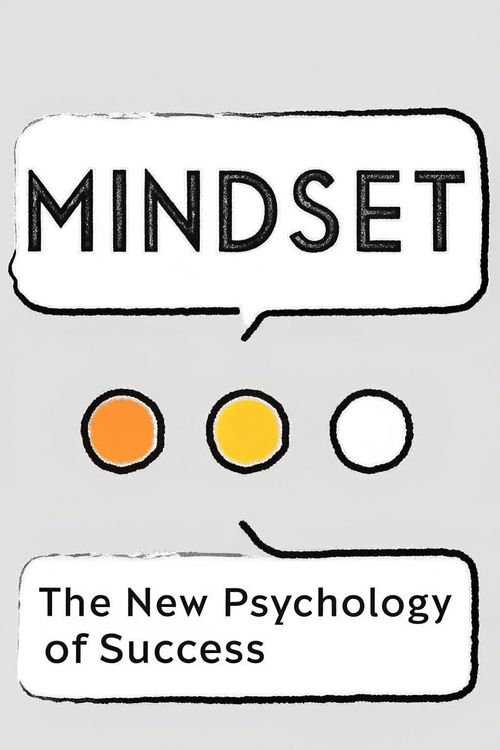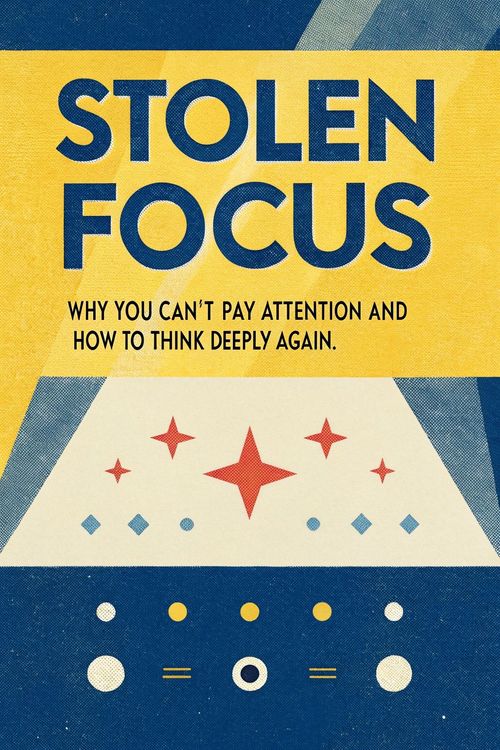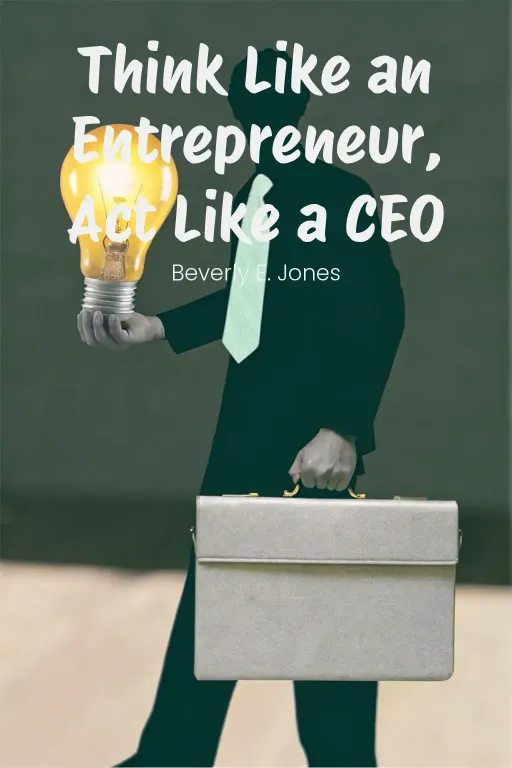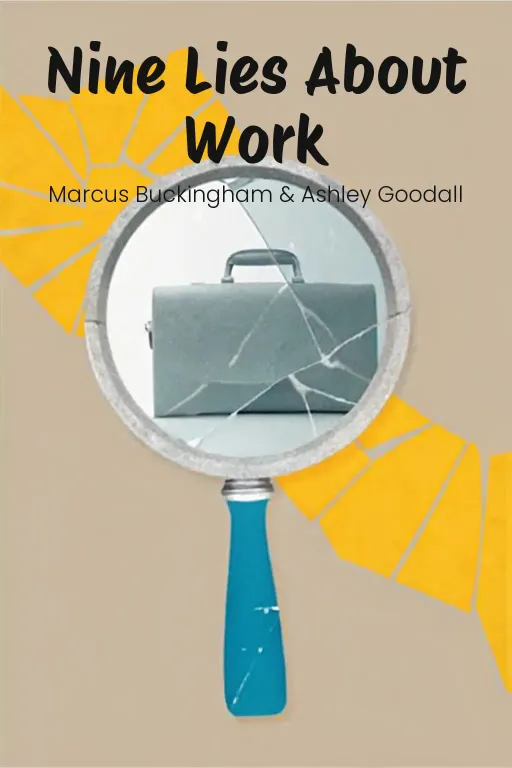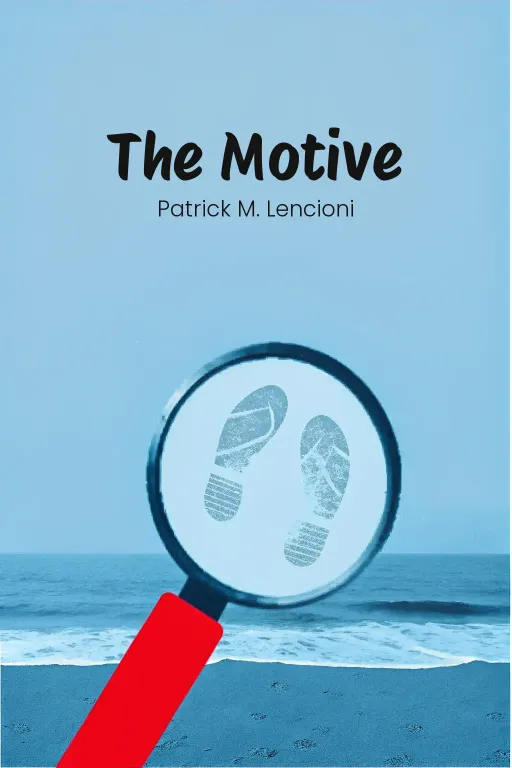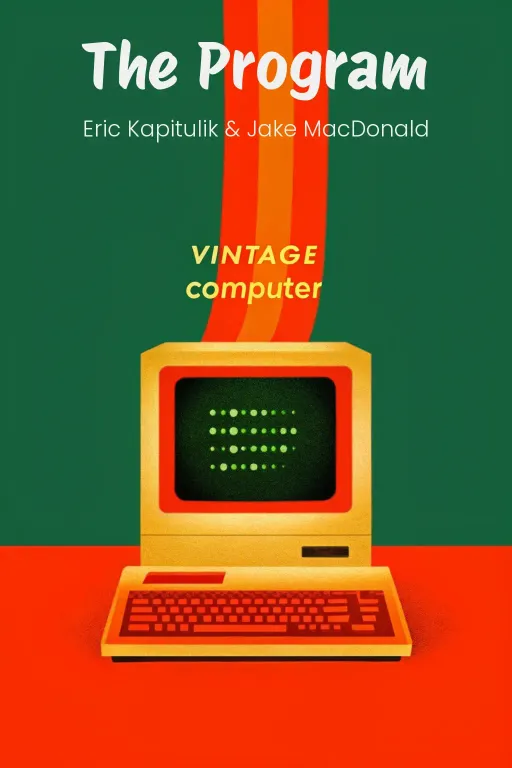
Master Your Life: The Principles Guide
Podcast by Beta You with Alex and Michelle
Life and Work
Master Your Life: The Principles Guide
Part 1
Alex: Hey everyone, welcome back! Today we're tackling “Principles” by Ray Dalio. It promises to be a game-changer, a real guide for success, not just in business, but in life. It's about taking charge and really shaping your own future. Michelle: A “blueprint,” you say? That's a pretty bold claim. So, is this practical advice we can actually use, or is it going to be one of those motivational speeches that leaves us scratching our heads, wondering where to even begin? Alex: No fluff here, Michelle. It's about figuring out your own core principles—your fundamental truths—and using them as your guide. It's like designing your own personal operating system for making decisions and turning goals into reality. Michelle: “Operating system”? Sounds like I need to become a programmer all of a sudden. Alex: Not exactly, but Dalio really emphasizes a systematic approach. He combines personal development with management strategies, showing us how to learn from our screw-ups, face reality head-on, and create frameworks for achieving what we want. Michelle: Learning from mistakes, though – that's easier said than done. Most of us either bury them or just keep repeating the same ones, right? Alex: Exactly! And that's why we're breaking down three key ideas from the book today. First, we’ll explore how principles act like a compass, giving direction and focus. Second, why Dalio thinks our blunders are actually opportunities for growth. And third, we’ll dive into his structured roadmap—a step-by-step system – that turns your goals into solid results. Michelle: Okay, so we’re moving beyond theory and into action. I'm curious. Let's see if Dalio's plan actually works in the real world.
The Importance of Principles
Part 2
Alex: So, Michelle, let's dive right in. What “are” principles, and why should we even care? Dalio makes a pretty compelling case that they're this bridge, right? This conceptual bridge linking what we value to how we actually act. They're not like, set-in-stone rules, but more like... guiding stars, keeping you consistent, especially when things get chaotic. Michelle: Guiding stars, huh? I like that image. But seriously, how many people “actually” sit down and hash out their principles? I mean, life's happening, you're putting out fires at work, just trying to make it through the week... Suddenly you're supposed to be some philosopher contemplating your guiding philosophies? Alex: Yeah, fair point. But that's exactly why Dalio stresses them. Without these clearly defined principles, life just pulls you in every direction, right? If you don't have a decision-making framework, you're just constantly reacting to external pressures, or whatever emotion you're feeling at the moment. Principles help align your actions with your core values, and Dalio says that's key for building resilience and, achieving real success. Michelle: Hmmm, sounds good in theory. But how do you balance being flexible with actually sticking to those principles? I mean, one person's "adapting" could just be an excuse for being completely inconsistent. Alex: Right, that's a great question. Dalio says principles should be broad but adaptable. For instance, imagine a leader pressured to focus on short-term profits, even if it hurts long-term goals. If their principle is sustainability, they’ll make decisions that align with that, even if it’s a bit risky in the short term. So it's about sticking to the values, but adjusting how you implement them to fit the situation. Michelle: Okay, adaptable without losing your core. Got it. But here's what I'm wondering: When you're leading a group, doesn't defining principles just turn into corporate jargon sometimes? You know, those "we value innovation and teamwork" statements that end up meaning absolutely nothing? Alex: Exactly. That's why clarity and specificity are so important. Dalio emphasizes that principles need to be actionable. They're not just ideals, they should directly influence your behaviour. For example, at Bridgewater, Dalio’s firm, they don't just “say” they value transparency, they “live” it by recording meetings and encouraging honest critiques. Transparency in action, not just on a mission statement. Michelle: Recorded meetings, huh? Okay, I see how that would create accountability, but it also sounds, well, a little intimidating. Is there a risk of overdoing it? Principles start as helpful guidelines, but can they be, you know, weaponized? Alex: Absolutely, and Dalio does talk about that risk. It's all about intention and how you execute it. For transparency to work, people have to feel like it's a tool for learning together, not for punishment. The recording at Bridgewater isn’t about catching someone screwing up; it's about making sure decisions are based on facts and merit. Principles, when truly collaborative, build trust, not fear. Michelle: Alright, I see the potential. But let's shift gears. Let's say I'm on board with this whole principle-defining thing. Uh... How do you even “start”? You're staring at a blank page... what's step one? Alex: Another great question! Dalio has a practical approach, which starts with self-reflection. Ask yourself, "What do I value most? What experiences have shaped my beliefs? How do I want to approach challenges?" It’s about getting to the core of who you are and what you stand for. For instance, if honesty is one of your core values, maybe you codify a principle to always prioritize transparency, even when things get tough. Michelle: Sounds introspective, sure. But isn't there a danger of overthinking this? What if you end up with, like, a hundred principles? How do you avoid paralysis by analysis? Alex: That's where prioritizing comes in. Dalio suggests focusing on overarching “life” principles first—the big-picture truths that guide your overall approach. Then, tailor more specific principles for different areas, like work, family, or finances. Keeping them context-specific helps you avoid feeling overwhelmed while still addressing unique challenges. Michelle: Alright, so let's say someone's got their principles nailed down. How do you actually make them part of your daily life? I can see someone writing everything out, feeling all accomplished, and then completely forgetting about it two weeks later. Alex: That's Dalio's second point: connecting principles to “actions”. It's not just about writing them down, it's about using them as a filter for making decisions. Say you're managing a team and one of your principles is fostering creativity. How do you actually “do” that? You create an open, inclusive environment where everyone feels empowered to share innovative ideas, even if they’re outside the box. It’s turning abstract values into tangible practices. Michelle: So, principles aren't just what you believe, but “how” you behave. Got it. But here's another question: Don't principles sometimes clash? Honesty versus kindness, for example... How do you navigate that? Alex: Well, that's kind of the beauty of reflection. Dalio points out that principles aren't one-size-fits-all. Sometimes, you need to weigh competing values and make trade-offs. Like, being honest doesn't mean being brutal, it means delivering feedback with care and constructive intent. Principles require nuance and discernment. Michelle: And maybe a bit of trial and error, right? No one gets this perfect the first time. Actually, this reminds me—Dalio's whole "mistake journal" idea, that ties in here, doesn't it? Alex: Exactly! He says principles evolve through experience. Documenting mistakes allows you to refine your principles over time. It’s like building muscle for better decision-making. When you reflect on what went wrong, you can tweak your framework to avoid similar pitfalls in the future. Michelle: I like that. Practical. Your principles aren't carved in stone, they're a living, breathing system, adapting as your life changes. Honestly, that flexibility makes Dalio's framework feel less intimidating. Alex: That’s the goal. Principles aren’t meant to constrain you; they’re meant to liberate you by giving you clarity and direction, no matter what life throws at you. Whether you’re designing your personal life or leading an organization, they act as your anchor and your compass.
Embracing Mistakes and Weaknesses
Part 3
Alex: So, understanding how fundamental principles work naturally leads us to applying them when things get tough. I mean, principles sound great, but the real test is when everything seems to be going wrong, right? Let's talk about this idea of "embracing mistakes and weaknesses." It does feel counterintuitive, because most people tend to hide or avoid their failures, not exactly lean into them. Michelle: That's true, but that's why Dalio’s perspective is so powerful. He's reframing mistakes, not as failures, but as growth opportunities. He wants you to view setbacks as stepping stones. According to Dalio, mistakes are the ultimate feedback, they tell you where you need to improve, both as an individual and an org. Alex: Exactly, but we're conditioned to see mistakes as bad, right? I mean, from school to the workplace, we're taught to avoid failure at all costs. It’s hard to suddenly switch that perspective and embrace it. Michelle: And Dalio points that cultural conditioning out as one of the biggest hurdles, doesn’t he? I mean, think about traditional education. Students are often penalized for getting answers wrong, discouraging risk-taking and experimentation. By the time they enter the workforce they’re carrying this ingrained fear of failure. Dalio argues that we need to unlearn this fear and treat mistakes as just a part of the learning process. Alex: Makes sense, but I'm guessing this is not just a mindset shift. I mean, does Dalio give us a how-to guide for turning mistakes into growth? Michelle: Absolutely! Yes, he outlines a few key tools and methods, right? One of the most important is pattern recognition and self-awareness. Well, mistakes aren’t isolated events, they often highlight deeper, unresolved weaknesses. So the key is to objectively assess, you know, the patterns behind these errors. If you keep missing deadlines, it's not bad luck, it could point to a time management or prioritization problem. Alex: So you’ve got to step back and ask, “What’s the real cause here?” instead of just addressing the surface problem. But isn’t it hard to be objective about your own shortcomings? People tend to get defensive, right? Michelle: That's true, and Dalio emphasizes detaching emotion from this process, doesn't he? You need to confront your weaknesses with honesty and see them as data points, not personal flaws. It requires asking reflective questions like, "Why do I keep making this mistake? What behaviors or circumstances are contributing to this?" The end goal is to develop self-awareness without self-criticism. Alex: Okay, but self-awareness can only take you so far, right? Sometimes you need an external view, a second pair of eyes to point out what you are missing. Michelle: Definitely, and that leads to his second tool: actively seeking feedback. Dalio strongly advocates for building feedback loops, regularly asking people for constructive criticism. It’s not about waiting for others to identify you flaws, it’s about proactively inviting those insights. For this to work, though, you need to approach feedback as a growth tool, not as a personal attack. Alex: I love that idea in theory, but in practice? Feedback can be, well, awkward, right? How do you create that environment where it feels safe to give and receive tough truth? Michelle: Exactly, that's where culture comes in, especially in teams or organizations. Dalio emphasizes normalizing constructive criticism. When it is a regular, expected practice, not an occasional event, it starts feeling less awkward and more like collaboration. He even suggests building systems, like scheduled feedback sessions. Alex: Systems again! It seems like he just loves organizing everything into a process – mistakes included. Michelle: That's absolutely true. And his third major tool, the one that ties everything together, is documenting mistakes systematically, right? Like at Bridgewater, he introduced "baseball cards" for employees, which recorded recurring strengths and weaknesses. Now, this transparency wasn't about shaming anyone; it was about accountability and creating actionable plans for improvement. Alex: Wait, baseball cards? So you're basically carrying around a stats card of all your failures? Like, "Here's Michelle! Known for bad time management and sarcasm in meetings"! That doesn't sound exactly fun, does it? Michelle: It might sound harsh at first, but think about it. The idea isn't to define you by your weaknesses; it's to make sure self-awareness is front and center, right? And because the data is transparent, improvement becomes a shared mission, not an individual burden. The focus shifts from blame to solutions, which is honestly empowering, huh? Alex: Alright, I see that. But let's make this relatable. Take someone like Michael Jordan–what would Dalio say about turning those moments of failure into growth? Michelle: Perfect example! Early on Jordan didn’t make his high school varsity basketball team. For a lot of people, that would've been devastating, but instead of letting it define him, Jordan used the experience as motivation to work harder. He refined his skills, trained relentlessly, and turned that setback into becoming one of the greatest players. Those failures built his resilience, mental toughness, and future success. Alex: Jordan’s story really captures Dalio’s mindset. Failure isn’t failure if you learn from it. It’s a pivotal moment that changes your trajectory. And it’s so relatable—everyone has faced those turning points, right? Even if you’re not Michael Jordan. Michelle: Exactly! Whether it’s missing out on a promotion or making a bad business decision, these moments are transformative if you see the opportunity for reflection and growth. But this isn’t just about individuals. Dalio also highlights how organizations can embrace mistakes collectively. Alex: Ah, organizations! This is where it gets tricky. How do you build that culture where it’s okay to mess up, especially when so many workplaces thrive on blame games? Michelle: Well, it starts with transparency, core to Dalio’s approach, isn’t it? At Bridgewater, they record meetings and encourage open dialogue about mistakes. Now, this isn’t about assigning blame–it is about creating an environment where errors become team learning opportunities, not sources of embarrassment. Transparency helps dismantle fear and promotes accountability. Alex: Okay, but transparency only works if it doesn’t devolve into micromanagement or a surveillance state, right? How do you maintain that balance? Michelle: That's the challenge. Transparency has to feel collaborative, not punitive, right? The goal is to normalize discussing weaknesses so they can be addressed constructively. If a team keeps missing deadlines, they discuss it openly, diagnose the root causes, and fix the underlying problems together. It’s about creating trust and removing the stigma around failure. Alex: Makes sense. Punishing mistakes leads to risk aversion, which stifles creativity and growth, doesn’t it? Encouraging open analysis, on the other hand, keeps people willing to innovate, even if it means occasional missteps. Michelle: Exactly. It goes beyond simply embracing mistakes; it’s about building resilience and adaptability. When individuals and organizations prioritize self-awareness, feedback, and transparency, they don’t just recover from setbacks, they evolve stronger and better prepared for future challenges.
The 5-Step Process to Success
Part 4
Alex: So, with our growth mindset in place, let’s jump into how to actually “achieve” long-term success. That brings us to Ray Dalio’s 5-Step Process. It's basically a systematic way, he says, to turn big goals into real results. Think of it as, you know, a strategy guide – taking you from figuring out what you want, to tackling obstacles, and then actually getting things done and learning along the way. Michelle: Okay, I’m listening. But I’m always a bit skeptical of these super-structured approaches, you know? Success isn't usually a straight line. Life throws curveballs – can any five-step thing really handle that? Doesn’t it box you in? Alex: He totally gets that, the process needs to be adaptable. Dalio’s whole point is that success comes from being both systematic and flexible. It's not about blindly following steps; it's iterative. You set goals, sure, but then you keep tweaking things when you hit snags, figure out why they happened, and adjust your plans accordingly. It’s a loop, not a one-way road. Michelle: Alright, fair enough. So, step one – what's the starting point? Alex: Step one is about getting really clear on your goals. And not just in a vague way, like “I want to be successful,” you know? Dalio says you need to be specific. Your goals should be ambitious, but doable, and connected to what you care about. He likes to say they’re like a compass – giving you direction, especially when things get crazy. Michelle: Specific, doable, values…got it. But, you know, life is messy. People have tons of priorities pulling them in different directions, not enough time… How do you even choose which way your compass should point? Alex: That’s where you really have to dig deep. Dalio suggests asking yourself those tough questions: "What do I really want to achieve?" or "Why does this even matter to me?". Think about a small business owner, for example. Instead of saying, "I want to grow my business," they might say, "I want to double my revenue in three years by selling online”. It's measurable, on a timeline, and it connects with their ambition. Michelle: Okay, clear goals – check. But then what? Identifying them can't be the hard part… it’s all the junk in the way that trips you up. Where does Dalio take us next? Alex: Next, you’ve got to face your problems. And here's the key: most of us just deal with the surface stuff instead of looking at the deeper problems. Dalio says to spot those potential roadblocks ASAP – don’t put them off or pretend they don't exist. You need to be brutally honest about what’s holding you back. Michelle: Sounds good in theory. But most people hate admitting problems, right? It’s easier to blame things outside yourself – “the economy is bad,” “my team doesn't cooperate” – than to look at yourself… Alex: Exactly, and that's a big problem. That's why Dalio says you have to create a no-blame environment for yourself and your team. Like at Bridgewater, they made it part of their culture to point out issues without judgment. When their investments didn't do so well for a while, instead of panicking, they took a hard look at why, and found some weaknesses in their risk models. Finding the problem was the first step in fixing it. Michelle: Okay, that's cool in a corporate setting. But how do you as an individual regularly spot and, you know, admit your own flaws? It’s hard to be objective about yourself. Alex: That's why things like self-assessment tools and feedback are so important. Dalio suggests using systems to evaluate yourself, both personally and professionally. You can just keep a journal of recurring issues, or have regular team check-ins. The key is just to realize, "Okay, this keeps happening – what's really going on here?". Michelle: Alright, so you’ve admitted there’s a problem. But just stopping there is like diagnosing a disease and not treating it. What's step three? Alex: Step three is diagnosing the root cause. Dalio's like, it's not enough to just see the problem, you’ve got to dig deeper and ask why it's happening. Otherwise, you’ll just slap a band-aid on it and it won't solve the real issue. Michelle: Let me guess – this is where the "5 Whys" comes in? Missed deadline? Ask "Why" five times until you discover it wasn’t laziness, but, you know, poor task assignment or unrealistic expectations? Alex: Exactly! Dalio says you have to trace problems back to the source. Like, if a project is always late, is it because of bad communication, unclear deadlines, or not enough resources? Getting to the bottom of that gives you a solid fix that lasts, rather than just throwing more meetings at it or telling people to “try harder.” Michelle: Yeah, this is where people drag their feet because digging into the "why" means you have to confront uncomfortable truths – bad planning, poor management, whatever. Much easier to just avoid it. Alex: For sure. Which is why you have to be objective when you’re analyzing – take your emotions out of it, and treat it like a puzzle. The goal is to find patterns that are sabotaging you, not to place blame. Dalio thinks this is where real progress starts – when you really understand what you’re up against. Michelle: Ok, so you’ve analyzed the heck out of it. Now do you actually do something. Is this where solutions come into play? Alex: Exactly. Step four is designing a plan of attack. And Dalio makes a key point here: having a clear goal and understanding the problem aren’t enough. You need a solid plan that connects your current situation to where you want to be. Michelle: And how do you make sure your plans aren't just, you know, wishful thinking? We've all made "perfect strategies" that fall apart in two weeks. Alex: Dalio says plans have to be realistic, but flexible too. They should be detailed with clear milestones, not just vague hopes. Like if a marketing team is struggling to keep clients, instead of saying, "We need to improve client satisfaction," they create a plan – set up regular feedback sessions, resolve complaints within 24 hours, offer loyalty perks. This is methodical and easy to track. Michelle: Makes sense. And if the plan doesn’t work perfectly? You adjust? Alex: Exactly! That flexibility comes back to the idea of being iterative. Think of your plan as scaffolding, you know? It gives you direction, but you can modify it as you build. The point is to act with intention. Michelle: Alright, last but not least – execution. I assume this is where most plans either, like, soar…or crash and burn. Alex: You got it. Execution is where you put everything into action. For Dalio, this isn't just about putting in effort, it's about discipline and staying on track. Even a brilliant strategy will fail if you don’t keep an eye on it. That’s why he says to check in frequently, set benchmarks, and tweak your actions if something is off. Michelle: And you can't execute in a bubble, right? Teams need to work together, be on the same page, and actually do their part. Alex: Exactly! Responsibilities must be clear. Think about the Apollo missions; the stakes were crazy high. Every single task, from calculating fuel to designing the spacecraft, demanded clear accountability and perfect teamwork. It’s that kind of intentional execution, constantly adjusting, that brings the whole process together. Michelle: I gotta say, Alex, this isn’t just some business school thing. It’s basically Dalio saying how to navigate the general chaos of life – set your compass, face your challenges, get real about why they’re there, make a plan, and do it like clockwork. It’s ambitious, but I can see the potential.
Conclusion
Part 5
Alex: So, to sum up, today we dove into Ray Dalio's “Principles” and how they can guide us to success, both at work and in our personal lives. We talked about having principles as a guide for decision-making, how seeing mistakes as growth opportunities is key, and Dalio's 5-Step Process to help you achieve goals. Michelle: Right, Alex. What we've learned is that principles aren't just fancy ideas—they're practical systems that keep you focused when things get complicated. Mistakes aren't something to avoid, but something to learn from. And that 5-Step Process? It's not just a to-do list; it's a way of setting goals, solving problems, and getting things done. Alex: Yes! And if our listeners remember one thing, it should be this: being clear about what you want and being able to adapt are essential for long-term success. It doesn't matter if you're working on personal goals or leading a team. Having principles that match your values and checking them regularly can “really” change how you handle challenges. Michelle: Exactly. Maybe start small. Think about a recent mistake—what did you learn from it? Write it down, look for patterns, and see how it could influence your principles going forward. Growth doesn't happen quickly, but thinking carefully about things helps. Alex: Couldn't agree more! Dalio's “Principles” is more than just a book—it's a set of tools for turning chaos into direction and purpose. The “real” trick is actually using it. Michelle: Agreed. So, we challenge you, our listeners, to start figuring out your own principles. Who knows? You might just create your own roadmap for life and success!



